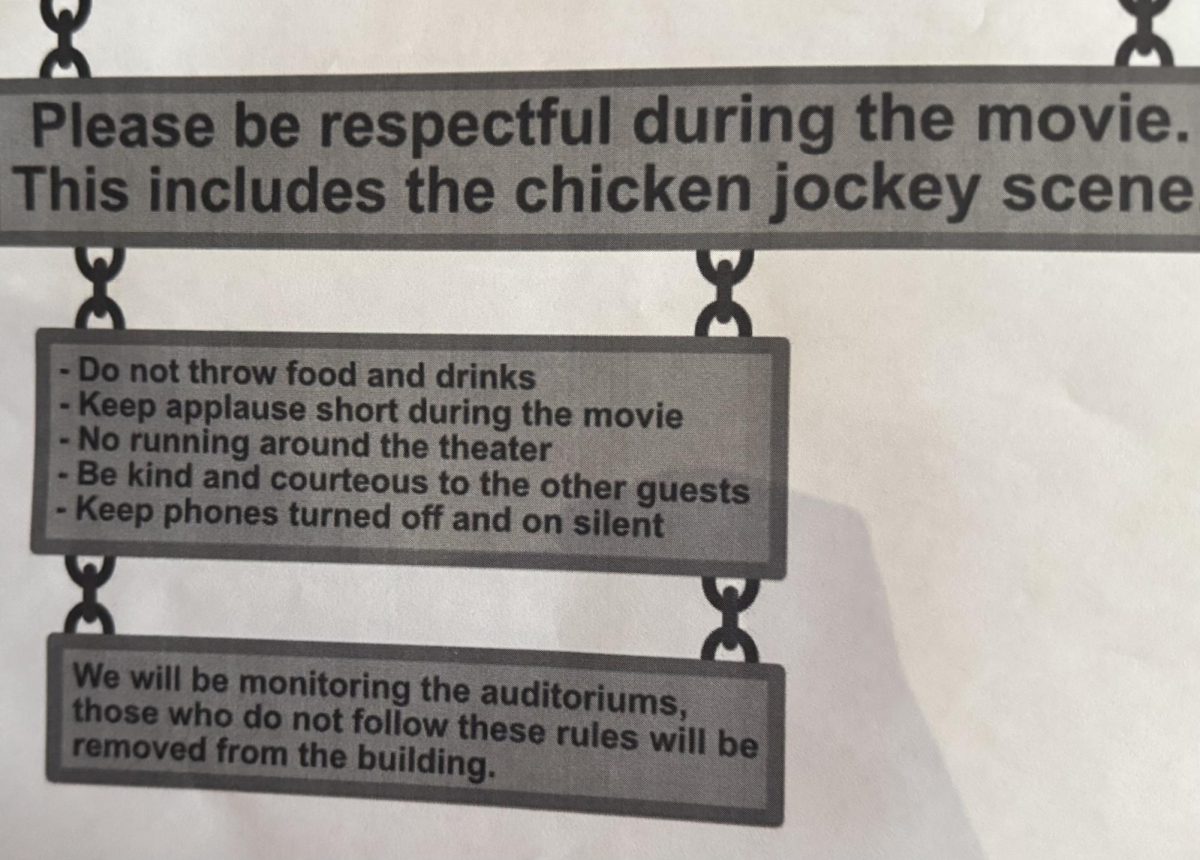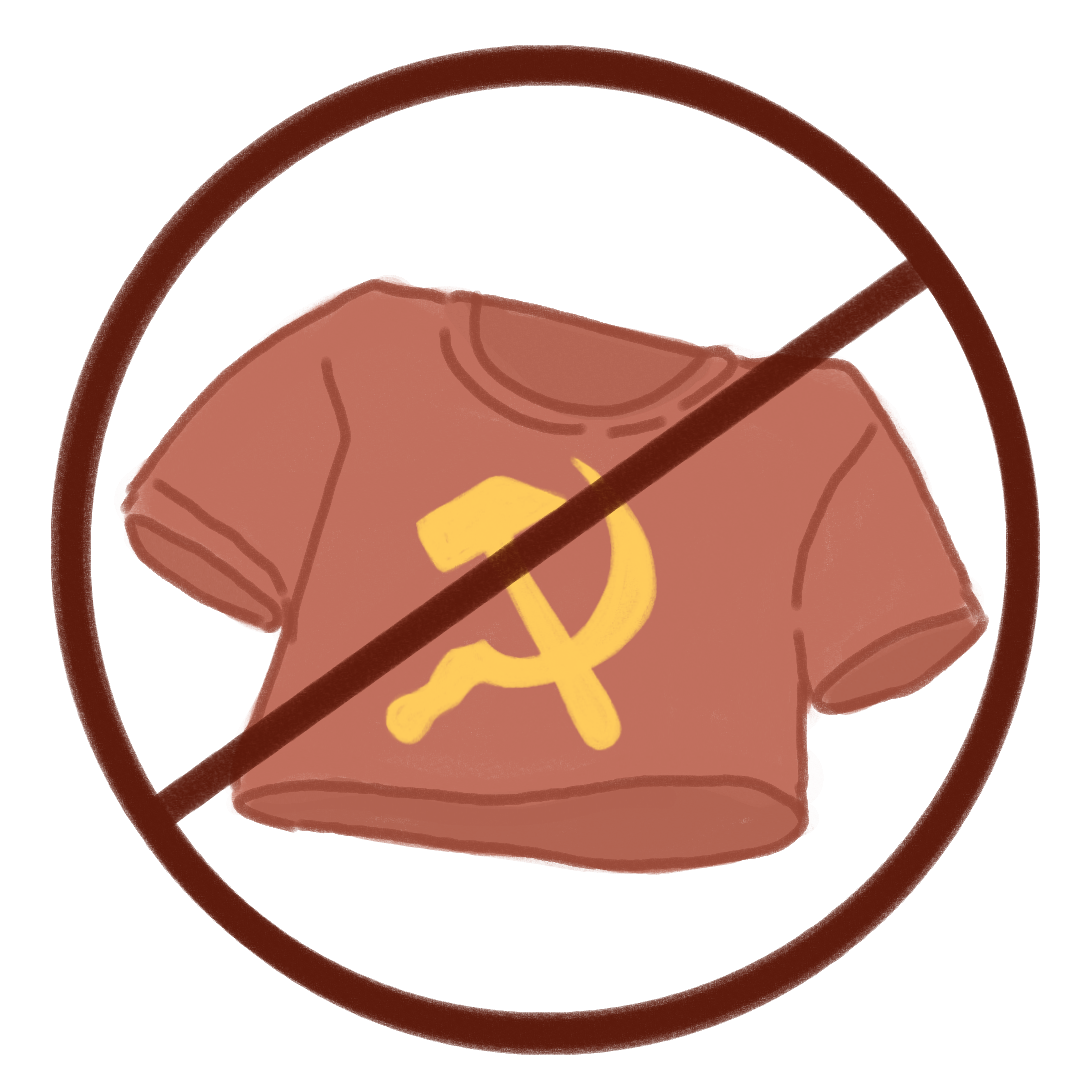Last Monday, April 1, we had a visitor come to campus. Armed with giant posters, a megaphone and a dedication to giving unhinged Christian takes to anyone and everyone who walked past, our visitor set up shop on Grand Ave. Facing the campus center with posters of aborted fetuses and Bible verses, he warned fornicators, drunkards, thieves, smokers, homosexuals, liars, atheists, gamblers, hypocrites, trans people and more of their final resting place: “H-E-double-hockey-sticks”.
Macalester does not have to be in contact with the incoherent and illogical arguments our visitor was providing. While our school is proudly a place where we come to hear other voices and learn more about our world through critical dialogue, that doesn’t involve hearing a random guy yelling about the sins of The Strokes. Our visitor failed to actually change anyone’s mind — all he did was create shock around the campus.
In response, students surrounded our visitor with flags and signs, rejecting his hateful message. While this was well-intentioned, what exactly did it solve? His power only comes from people giving him attention, but our counter protest did exactly that. This cannot be the right way to protest.
The largest reason for students’ protests against our visitor was to provide solidarity for those traumatized by individuals who share his beliefs. For many, the form of protests we saw last week can be incredibly validating. And yet, we have still done the wrong action. We’ve only heightened our visitor’s hatred of us and mocked a man who has been indoctrinated by the ideas around him.
To talk about how we should approach hateful protests like this one, we first need to understand who our visitor is. From what I can see, it looks like our visitor has been here twice before — once in 2019 and once in 2022. In each case, Macalester has had similar responses to his protests, if not larger ones. And yet he still comes back, each time more determined than the last to yell at students minding their own business. Why does he do this? Why does he keep coming back?
We also need to understand the ideology of our visitor. In his mind, an all good, all loving and all powerful God has divinely written a how-to guide for how to live. The world around us does not follow what an all knowing, all good God said to, so they have to be wrong. To disagree with God is to be out of communion with him and, therefore, in hell. So every single person who does not follow what is good, the literal word of God, will be damned to hell.
Can you imagine the pain of knowing that so many people will feel so much pain for so long? And the only way to solve it is to change their mind? To get them to repent? I would be doing whatever it takes! Nobody wants to believe an ideology like this, they have to.
Our visitor truly believes that he is doing what is right. So why is he so wrong?
He believes this because of the community around him. It’s no shock to anyone that socialization can have profound effects on someone’s logic and ideology. Take it from me: when you go to a religious school and live in a religious home, when every mentor and peer you have believes the exact same thing as you do, you can’t believe something else.
We, as Macalester students, understand this. We understand that a person is more than just the character we turn him into. And yet we still berate him. We still don’t empathize with him; we treat his shouts as forms of hatred. Why? It would be understandable if this man had power, if he had the ability to actually hurt us, but he doesn’t! The only power he has is the power we grant him.
So where do we go from here? It can feel like an impossible task to see the humanity in someone who predicates an ideology built on hate. What is the point of working so hard to find humanity in this person when I’ve already been through so much pain?
I grew up in an all Catholic home. And although my family was accepting of my sexuality, no one else in my life was. I went through grade school and middle school known as the gay kid because of the way I acted. I vividly remember being called slurs over and over again in online voice chats for my high voice. In high school I was bullied for my interests, likes and everything under the sun. Day after day I would be catcalled and laughed at, slurs under their breath, as I walked through the locker room to cross country practice. The classroom didn’t help much either. Being told your capacity for love is void because the person you choose hurts, even if you know it’s just a philosophical disagreement. I remember skirting around my sexuality, leaving it up in the air and removing gender from the conversation with some of my closest teachers because I knew they wouldn’t show the same love and respect if I said ‘him.’
As time went on, and the years passed, I tried anything and everything to show that it didn’t bother me. At some points I added to the flames, at others I fought back, but nothing worked. The utter isolation I felt from people who were supposed to care for me pervaded every part of my life.
And then one day I tried something different. Instead of seeing these people as a balling mass of hate, looking for any and every chance to attack me for who I was, I met them as who they really were. I saw the childlike fear in kids I went to middle school with, too young to understand the pain of their actions; the highschoolers who conformed to the norm for the sake of validation; teachers as ideologically socialized individuals; everyone as human. And it worked. It got easier and easier to be in dialogue with those so against who I am. Now, I smile when I shake the hands of a Planned Parenthood protester on the way to get an STI test or hug my childhood priest who told me being gay damned you to hell. The sense of freedom in knowing their words mean nothing to me is more liberating than berating them with hate, or watching from the sidelines.
Protesting is more than the introduction of political power — it’s the way we stay in dialogue with those we disagree with. I know it can be hard, and I know the pain that can come from our visitor last Monday. But I ask, not just out of love for him, but out of love for yourself, to meet him where he’s at. Just see the liberation it brings. Trust me.








